The 16:9 PODCAST IS SPONSORED BY SCREENFEED – DIGITAL SIGNAGE CONTENT
When I was doing my initial recon walk through the many halls of ISE a few weeks back, I went by a stand that was highlighting something called the Global Signage Alliance, which was unfamiliar to me and made me curious.
The stand's occupants weren't there, and I was on the go, so I never got a chance to get filled in at the show. But I asked some questions and made some contacts after the fact. I assumed this was a Euro-centric version of the Digital Signage Federation. There have been 2 or 3 of those, I think, and maybe this was another. But it turns out that's not what the GSA, as it is called for short, is all about. It's a formalized user community for Samsung digital signage software and smart display products.
The cynic in me thought "OK, this is kinda like big pharma and energy companies that form institutes." Imagine me doing air quotes around institutes. But that's not what this is, according to GSA chairman Mark Ossel. He says the organization was initiated out of common needs among companies - starting in the Netherlands - who wanted to share information, ideas and business opportunities ... who were all, also, using Samsung's CMS software MagicINFO, or Samsung's smart signage displays. It's the shared purpose, strength in numbers thing at play here.
However, Ossel did say that Samsung does now provide some financial support. This makes sense, at least to me. A user group has the interest and mission to stay closer to a product and its evolution, as opposed to being disparate end-users that end up with new functions or features just getting dropped on them by a technology company. Which happens.
For Samsung, they can be closer to some key customers and support a user community, without perhaps doing as much heavy lifting to build and nurture that community.
Have a listen.
Subscribe to this podcast: iTunes * Google Play * RSS
TRANSCRIPT
Mark, thank you for joining me. Can you tell me what the Global Signage Alliance is all about?
Mark Ossel: Yeah, my pleasure, thanks for asking. The Global Signage Alliance is a user group, meaning a group of companies, and individuals from the digital signage world, coming from the creative side, coming from the services side, or being an end-user company using digital signage. So it's all kinds of companies who basically come together in the organization. It's a nonprofit organization, on a global scale, to exchange information, and share experiences but at the same time where there are opportunities to work together because these days more and more opportunities cross country boundaries as well as of course cross the own area of specialism. So you want to join forces with other companies to basically be able to fulfill the requirements of a proposal, tender, or procedure where you basically need to combine hardware, software, services, implementation, installation, integration, whatever it is, beyond what your own capabilities are.
So it's working together as well and then last, but not least, joining forces for marketing events or all kinds of exposures, which we jointly do to promote digital signage and the capabilities of the group. Moreover, the group as well secures the quality of what is being delivered by, in fact ensuring training to employees, and staff members, raising the bar in the quality of what is being delivered.
In the future, we want to create a quality stamp to let the market and the buyers know that these are companies that have the right skills to deliver a quality solution.
What's the backstory? Where did this come from?
Mark Ossel: It started in the Netherlands with a few companies in digital signage who basically understood that it makes sense to work together as well as to exchange experience, and information sharing and those companies had in fact an informal network, then it was growing with other companies across Europe, and then basically, yeah, it came to the point that we said it makes sense if we formalize this as a nonprofit organization with the structure of members, have a dedicated staff, have a formal board and comply with all the necessities you want to have as a decent organization.
When I was at ISE two-three weeks ago, I was walking through one of the halls, the digital signage hall, and walked by the Global Signage Alliance stand. Unfortunately, someone must have stepped away for a break or something like that, there wasn't anybody there to chat with, so I'm catching up after the fact.
I assumed when I was walking by that, oh, this is like a European version of the Digital Signage Federation, and there's been a couple of runs at that by different organizations In the past, I'm not quite sure where they're at, but when I'm digging into it a little bit, I actually see this is not necessarily a broad community, it's really focused around Samsung and Magic Info and its platform. Is that accurate? And why is that if so?
Mark Ossel: Well spotted and, no one was there at the time you passed by, but it was interesting because we wanted to raise awareness for the GSA at ISE and ISE basically does recognize that we now start to represent a segment of their target audience and of the market, and they were willing to give us the ability to be there on the stage.
Yeah linked to Samsung platforms, not only Magic Info but any Samsung platform. The reason is, you need to make a choice as a company on what technologies you use, and approximately half of the screens come from Samsung. We do believe in the architecture and the embedded capabilities in the screens. So it made sense that all those companies joined forces using the Samsung platforms and believed that it was a proper way forward. We also get some support from Samsung and that works both ways.
As a user group, we are now recognized by Samsung as well as a proper sounding board for them, providing input on the requirements of the market. So they listen to us, we talk directly to their developers and give direction to the developments and the next generation, based on what we feel we need as a market and with new products, of course, we are the Guinea pigs to test it before it gets to market. So it works both ways. It works quite well to have a loyal dedicated highly skilled group of companies working with Samsung on moving digital signage to the next level
Yeah, I could certainly see the business advantage to companies to stay close to Samsung or some other company that's developing a platform like that, because you can either have the new advances, the new thinking dropped in your lap, and hopefully it makes you happier or you can be contributing to what that development roadmap and product roadmap looks like by being tight with them.
Mark Ossel: Exactly, and now we not only get to know it in the beginning, but we basically drive development as well in the direction, and we have the discussions on next-generation technologies because there might be a time delay of one or two years from development to market release. So we are involved in the early stage but as well with any changes to current products and new requirements or taking with new products as well, the migration path from one to another or the coexistence. It all comes to play, and then, yeah, being able to provide feedback from the market, from real people who work with it on a daily basis. That is to the development team of great value as well.
Did Samsung as a corporate entity approach a loose-knit group in the Netherlands to formalize something? Or was this something that this group formalized and then went to Samsung and said, hey, we wanna do this but in order to make it happen, we need some financial support ‘cause there's just the day-to-day of a nonprofit and you may have a small budget, but you still have costs?
Mark Ossel: Yeah, sure. So it went the first way. So the group of companies coming together created the organization, regardless if Samsung could support it or not. Because we saw the need and the benefit of a group of companies working together, like exchanging information and all the things I said to work together on larger projects and we had seen the benefits already of that. So the drive came from the market and Samsung, they do welcome it.
What happens if you are a digital signage company that works across a number of platforms and not necessarily just Magic Info and Samsung's embedded smart displays? Is there any value in being a member and can you be a member?
Mark Ossel: Good question. Although many of the members we've got today are dedicated to using the Samsung platforms because that's where their skills and knowledge are based upon. So I don't see many of them using other technologies as well. But if there would be a company that has a mix of technologies, yeah, sure, they're welcome as long as they use the Samsung platforms as well. Otherwise, it wouldn't make sense to join. I'm pretty confident that over time, they will use the Samsung platforms more and more because of the added value of focusing on a specific platform and technologies. If you spread your knowledge over a number of platforms and development tracks, your staff becomes too thin, instead of being really deeply focused and trained on a specific technology. I'm in favor of focusing in every respect, that means as well on skills. Knowing a little bit about a lot of platforms does not give you the advantage of knowing some technologies and platforms very deeply.
How many members do you have right now?
Mark Ossel: We started, in fact, just before the Corona. The timing was unfortunate, so we had to put it on hold. There were no events. It was a bit of a strange world. So we held a ceasefire for some time. And in fact, this year we relaunched the organization. We have a few dozen members right now. It's good to see that even during ISE quite some companies basically were interested, and a number of them signed up on the fly immediately. There are some, of course, who have had to request permission internally or approval from their senior management to join.
But most of them, if not all, see the benefit if we talk and explain what we're doing, and the fees are so low that it’s not a showstopper to become a member. We expect during the course of the year, to bypass a hundred companies as members, and then of course grow beyond.
When you have somebody walk by the standard at ISE or elsewhere and they say, okay, give me your elevator pitch. Why should I join? What do you tell them?
Mark Ossel: Ah, good question, and that question of course we answer quite a lot of times. But basically, If you are in digital signage and if you have projects which cross your own area of expertise or cross geography boundaries, you need to act to basically have a partner network of companies you can rely on, data level quality as well. You build a family network. You can work together as well as you can benefit from the experience or the complimentary solutions which the other parts of the family have, then it makes sense for you to join as a member.
If you basically now look at the memberships they're mainly from Europe, but we are now expanding as well. In fact in Africa, and South Africa, we have members in mid-Asia, and Eastern Europe is growing. We get some interest from the United States, so it's getting more global as well.
Is Samsung helping raise awareness?
Mark Ossel: Oh yes, they welcome it in many respects. First of all, this has become a channel to market for them. A way to communicate to the market as well as new products, provide training. We are using doing where Samsung does presentations as well as where if our members do presentations or demonstrate showcases of successes they have implemented, then we see Samsung staff joining those webinars to learn about how their products are being used in the market.
So in that sense, it works and vice versa. They like the success stories, they like to understand how those products are used and see those showcased, and we basically create a portfolio on our portal as well through online sessions, get the messages across on what can be done or what has been with the technology.
So in a lot of ways they're encouraging a user, community, user forums, and user discussion without having to directly manage that themselves and not create the illusion, but have that degree of separation so it doesn't feel entirely like, “Here's our Samsung forum. Come here, and oh, by the way, while you're here, we'll sell you our pots and pans.”
Mark Ossel: Correct. It's to some extent, of course, related to technology and discussions on exchanging information about how they deploy the technology, but it's the other wider discussion on trends as well. Take the trend to the cloud. Not only as storage but also as software in the cloud. The integration of all the social media, the metaverse type of concept, and the impact on digital signage. We spent quite some cycles on security. We did as well security audits on some solutions. Interconnectivity and interactivity as a topic is being discussed, where more and more sensors of any kind, any format are being applied where the interconnection between applications to basically have more data-driven content, use more artificial intelligence in the backend, between the different applications, which through APIs, access data.
The market demands more flexibility, and more real-time interaction with the end user, and the consumer as well. There are so many trends in the markets that can be discussed and discussed between members. If you look at the younger generation, they want experiences in every respect being in a museum or in a retail store. How can you create that experience? How can you create that interaction with the social media platform? It all comes to play. It's as well, regardless of the lower level technology, these are the topics that are of interest to all the members and yeah, if you talk about it, you hear the different ideas, and it triggers your creativity as well.
So once in a while, we have those sessions where it's a bit like sitting with friends at the bar and discussing major things and trends, which basically trigger your creativity to gain some new ideas on how to apply that as well.
For the interest that you've had from North American companies, has there been any kind of pushback or questioning about, “I'm already a member of the Digital Signage Federation, why would I also join this or do I have to choose?”
Mark Ossel: No, I don't think we get the matter of choosing. In most cases, we talk to them and they see the advantage specifically for American companies that they now get access to a network in Europe, and if they have a customer, like a retail chain, which basically has a global presence, it's of great interest to have access to partners network, friends, and family in Europe, which basically in rollouts or in that kind of thing, it's beneficial to basically expand the network, in fact, beyond the United States.
So if there's a let's say an integrator that is using Magic Info for actually, I'm thinking of a school district in Florida that has an integrator that does a ton of stuff like that if they somehow end up getting questions about, could you take this platform to France or to the Netherlands or Belgium or whatever if they're part of your alliance, conceivably would have business ties or at least exposure to companies over there that could maybe do this in tandem with them or in collaboration with them?
Mark Ossel: Exactly. You got it, and of course, if they have built a great solution, why not promote that in Europe? And it might be something that works, as you said in the case of that school district, maybe that is an application that could be a perfect showcase here, and it gives them access to this market through the network of partners here.
One of the things that were happening at ISE, apart from the black-walled fortress that Samsung weirdly had limited access to their whole stand, was discussion around the evolution of Magic Info and how there was a new platform coming called VXT. Is that something that your group has been aware of and has been talking to Samsung about?
Mark Ossel: Oh yeah, sure. Long before ISE, we started discussions with Samsung on that new platform, VXT. So yeah, as said our alliance is not limited to Magic Info, but all the platforms of Samsung, so this will be part of it as well in the future, and we have discussed functionalities as well as coexistence migration between platforms and so on with Samsung.
So would you say there's been a benefit around that in that you somewhat have insider knowledge of what's coming ahead of perhaps some other companies that are just now starting to get exposure to what this thing is?
Mark Ossel: Yeah, absolutely. Before ISE, we had conversations about it already and at ISE we even had a specific session with Samsung and some of the members were present on this topic as well. Yeah, we are at the forefront of that development as a group.
Now, there would be some people who would suggest, it's got some similarities to, let's say, pharmaceutical manufacturers who create institutes and associations and alliances and things like that as a front for their company. It gives them separation by doing it that way.
Are you getting those kinds of questions or even criticisms at all, like this is just a Samsung thing and they've called it an alliance, but it's not really a nonprofit, and so on?
Mark Ossel: No, in fact, I don't get it.
It is truly a non-profit organization and independent. It's our own choice to work closely with Samsung, and we see it as mutually beneficial. We get early insight, we have the ability to give feedback and change direction where we feel it would be required. Samsung sees the advantage of having a loyal group that provides professionals with proper technical knowledge to provide valuable feedback.
It's a win-win. There is no dependency either way. It is beneficial for both sides.
And what's your background on this? How did you get involved in the work that you do in digital signage, what is that?
Mark Ossel: I started a long time back, with a video company that goes back to the early 80s.I have been in the IT industry as well since the early 80s. So the combination of audio, video, and digit digitization has been my path. Been on the board of a signage company for 30 years.
Oh wow. Which one was that?
Mark Ossel: It’s DVC, a Dutch company, pretty significant. One in digital signage and in traditional signage. But yeah, I have some other activities well in the energy sector, and it's funny to see that all those things now perfectly come together. Energy and sustainability have become even big things in digital signage. It's one of the major topics and concerns of many customers, ranging from, how much energy a screen use? Or how can I manage the energy consumption or sustain it?
In a broader sense basically reflects everything from packaging to your total CO2 footprint which now becomes a topic in many discussions as well. So that's one we see as well in the development conversations of hardware and what you can drive and manage through software in this sense on this hot topic.
Yeah, that's such an interesting area now that people in North America, like me, have looked at Europe and thought, okay that's a different circumstance. Few people in North America seem to be asking questions about energy consumption for computing devices and displays and so on, and then Ukraine happened and everything else has happened around it and now you're even hearing people in the United States and Canada asking the questions around, how much power is this consuming and how do we limit that?
Mark Ossel: Exactly. It's simple things like, what's your standby power? How can you control the energy? How can you measure it? And I'm assuming it goes a step further. Even if you look at content, some content can be created to use less power than others.
You use all white it's blinding and it's really sucking it up. If you use black backgrounds, it's not using power.
Mark Ossel: Yeah. Those simple things start to make a difference. But then as well, if there's nobody walking nearby can you dim it, can you have the sensors checking and dims if there's nobody it's the area, why would you have streetlights on if there's nobody in that area at all, huh? And so more sophisticated solutions to address this topic are hot right now as well.
So if people want to find out more about the Global Signage Alliance, where do they go? What do they need to do?
Mark Ossel: First of all, look at the website, gs-alliance.org.
That's where they basically have the initial information and the contact details to our staff who basically then provide them with anything they want and then we'll take it from there and welcome them as a member.
And it's just one tier of memberships, right?
Mark Ossel: Yeah, it’s simple.
EUR 250 and you're in, as long as you qualify, right?
Mark Ossel: Exactly EUR 250, then you're in and you start making money if you really use take advantage and use the network.
Thank you very much for spending some time with me.
Mark Ossel: Thanks, Dave, for asking the right questions and giving the opportunity to get the GSA across to your audience as well Thanks for that opportunity, and continue with your great programs.
More Episodes
Michael Provenzano, Vistar Media
 2019-08-14
2019-08-14
Tom Milner, Service And Support
 2019-08-07
2019-08-07
Joe' Lloyd, NanoLumens
 2019-07-31
2019-07-31
Mike Kilian, Mvix, On Workplace Communications
 2019-07-24
2019-07-24
Artem Risukhin, Kitcast
 2019-07-17
2019-07-17
JJ Parker, Tightrope Media Systems
 2019-07-10
2019-07-10
Ian Dallimore, Lamar
 2019-06-12
2019-06-12
Burr Smith, Broadsign
 2019-06-05
2019-06-05
Ronnie Lee, Holocryptics
 2019-05-29
2019-05-29
Fab Stanghieri, Cineplex Digital Media
 2019-05-22
2019-05-22
Dan Hagen, 10net
 2019-05-15
2019-05-15
Robert Heise, Global Display Solutions
 2019-05-08
2019-05-08
Neeraj Pendse, Elo
 2019-04-30
2019-04-30
Brian McClimans, Peerless-AV
 2019-04-17
2019-04-17
Sean Matthews, Visix
 2019-04-10
2019-04-10
Jeremiah Archambault, ENS
 2019-04-03
2019-04-03
Jane Boyce, Tru Vue
 2019-03-20
2019-03-20
Bjorn Pieper, NDS
 2019-03-13
2019-03-13
ISE Chats: SodaClick content and Inotouch transparent LED film
 2019-03-06
2019-03-06
Eric Virey, Yole Developpement
 2019-02-27
2019-02-27
Create your
podcast in
minutes
- Full-featured podcast site
- Unlimited storage and bandwidth
- Comprehensive podcast stats
- Distribute to Apple Podcasts, Spotify, and more
- Make money with your podcast
It is Free
You may also like
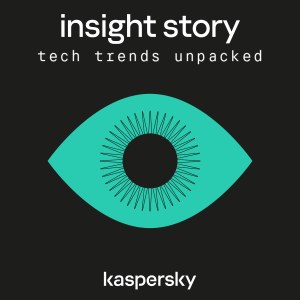
Insight Story: Tech Trends Unpacked

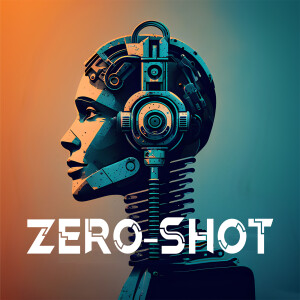
Zero-Shot

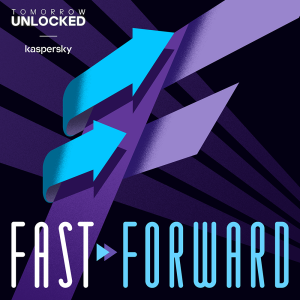
Fast Forward by Tomorrow Unlocked: Tech past, tech future


Lex Fridman Podcast


Elliot in the Morning


- Privacy Policy
- Cookie Policy
- Terms of Use
- Consent Preferences
- Copyright © 2015-2024 Podbean.com

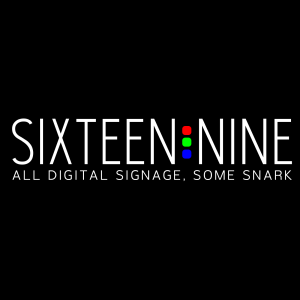
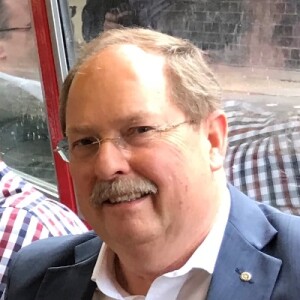

 iOS
iOS Android
Android